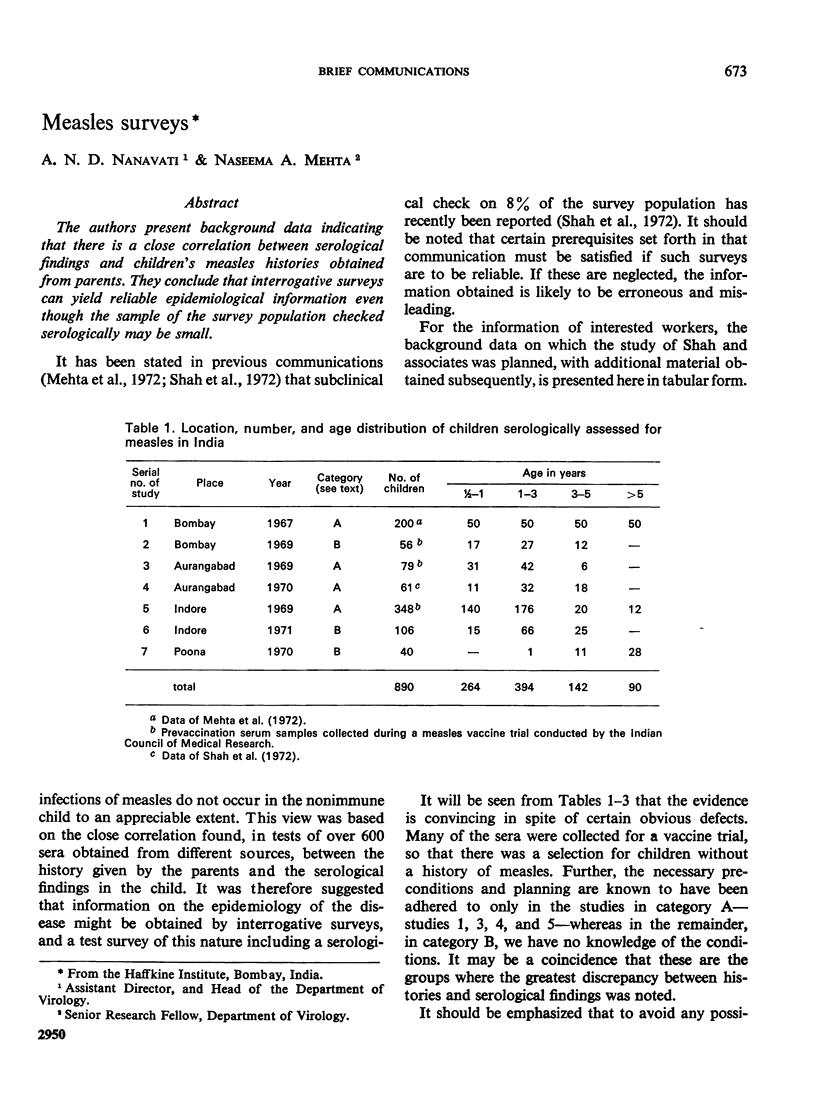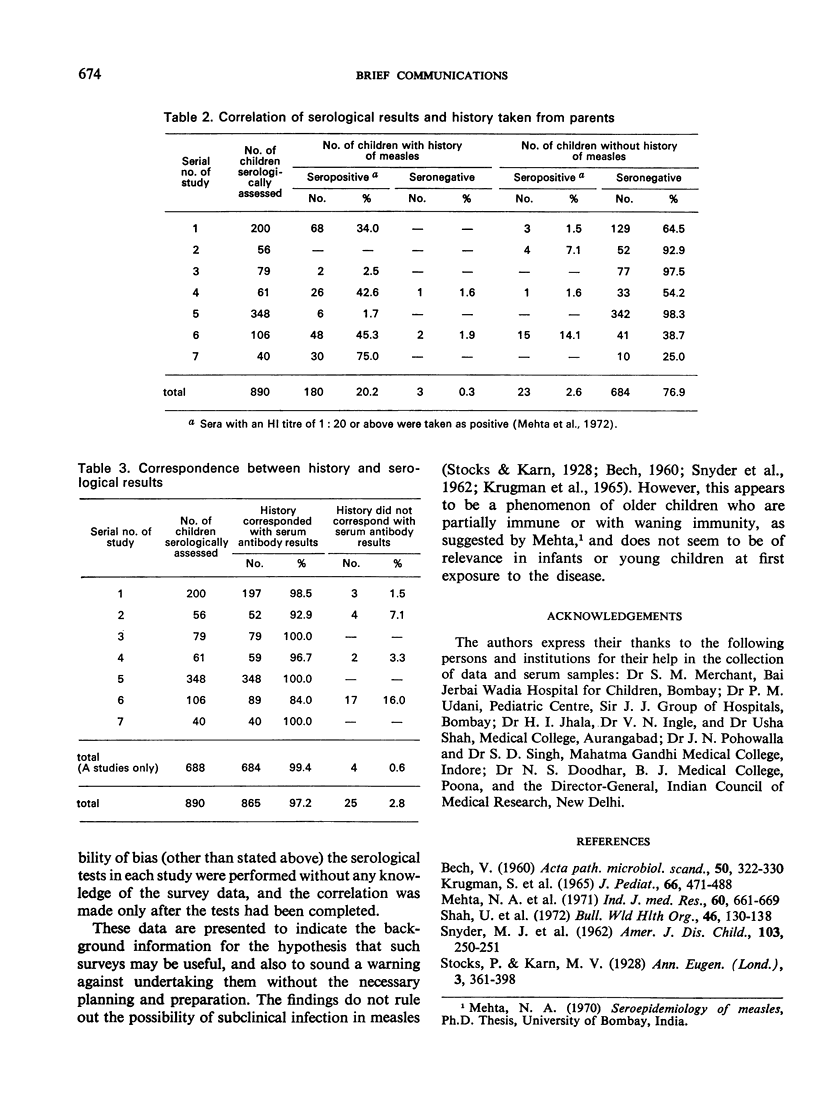Abstract
The authors present background data indicating that there is a close correlation between serological findings and children's measles histories obtained from parents. They conclude that interrogative surveys can yield reliable epidemiological information even though the sample of the survey population checked serologically may be small.
Full text
PDF

Selected References
These references are in PubMed. This may not be the complete list of references from this article.
- BECH V. Titers of complement fixing measles antibodies in sera collected at random from healthy persons in Copenhagen. Acta Pathol Microbiol Scand. 1960;50:322–330. doi: 10.1111/j.1699-0463.1960.tb01199.x. [DOI] [PubMed] [Google Scholar]
- KRUGMAN S., GILES J. P., FRIEDMAN H., STONE S. STUDIES ON IMMUNITY TO MEASLES. J Pediatr. 1965 Mar;66:471–488. doi: 10.1016/s0022-3476(65)80112-3. [DOI] [PubMed] [Google Scholar]
- Mehta N. A., Nanavati A. N., Jhala H. I., Sant M. V. Seroepidemiology of measles in Bombay. Indian J Med Res. 1972 May;60(5):661–669. [PubMed] [Google Scholar]
- SNYDER M. J., McCRUMB F. R., Jr, BIGBEE T., SCHLUEDERBERG A. E., TOGO Y. Observations on the seroepidemiology of measles. Am J Dis Child. 1962 Mar;103:250–251. doi: 10.1001/archpedi.1962.02080020262012. [DOI] [PubMed] [Google Scholar]


